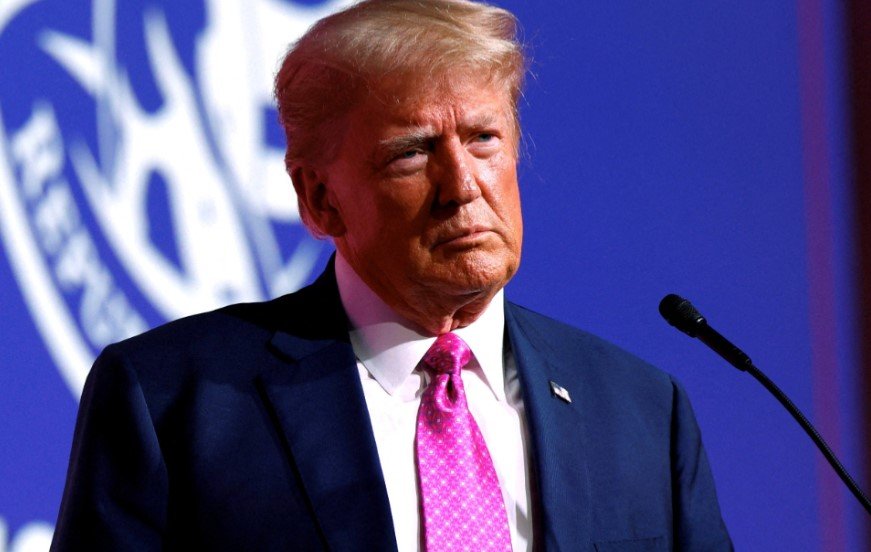US President Donald Trump has signed a sweeping presidential proclamation banning travel from 12 countries, citing growing national security threats and the need for stricter vetting. The new rules are set to kick in from June 9, 2025, at 12:01 a.m.
The move follows recent violence and is seen as a continuation of Trump’s tough stance on border security, though it brings fresh controversy and challenges.
A Swift Response to Rising Security Fears
The White House announced the new travel restrictions late Wednesday, citing specific concerns over countries deemed high-risk due to poor vetting processes or insufficient information sharing with the US. The list includes Afghanistan, Iran, Libya, Somalia, Yemen, and Eritrea, where nationals will face a complete travel ban.
Seven additional countries, such as Cuba, Venezuela, and Turkmenistan, will see partial restrictions. Importantly, the proclamation exempts lawful permanent residents, existing visa holders, and those whose entry serves US national interests.
The timing of this proclamation is notable. Officials revealed the decision accelerated after the antisemitic attack in Boulder, Colorado, which rattled the nation and heightened worries about foreign threats. Although discussions about these measures were underway for weeks, the violence seemed to tip the scale, pushing Trump to act swiftly.
Abigail Jackson, the White House deputy press secretary, emphasized on social media that these restrictions align with Trump’s campaign promises to protect Americans from dangerous foreign elements. She described the measures as “commonsense” and “country-specific,” highlighting concerns like high visa overstay rates and inadequate identity verification.

Echoes of Past Travel Bans and Political Fallout
This proclamation isn’t Trump’s first attempt to tighten travel from specific countries. Back in his first term, he famously rolled out a travel ban targeting mostly Muslim-majority nations. That earlier move sparked intense legal battles and widespread protests, with critics accusing the policy of discrimination and violating human rights.
President Joe Biden reversed those bans upon taking office in 2021, aiming to restore a more open immigration stance. Now, with this latest proclamation, Trump seems to be revisiting his old playbook—but with new targets and under a fresh set of justifications.
Afghanistan stands out as a critical case. The renewed ban could severely impact Afghans who worked alongside US forces and are waiting on Special Immigrant Visas. Many fear this could jeopardize their safety and futures.
There’s also the question of how this move will be received internationally. Allies and critics alike will watch closely, as travel bans often carry diplomatic consequences and spark debates over security versus human rights.
What This Means on the Ground: Immediate Effects and Long-Term Risks
Starting June 9, travel from the affected countries will be tightly restricted. Airports and consulates will likely experience increased scrutiny, and visa applicants from these nations will face more hurdles.
-
Permanent residents and existing visa holders will be exempt.
-
Exceptions may be made if entry is deemed critical to US interests.
-
The list of countries could expand if new threats emerge, Trump warned in a social media video.
Many community leaders and immigration advocates have expressed concerns over the sweeping nature of these bans. They argue the measures risk unfairly targeting innocent people and complicating US humanitarian efforts.
At the same time, security experts acknowledge the government’s desire to tighten vetting amid evolving global threats. It’s a delicate balance between safeguarding citizens and upholding America’s reputation as a land of opportunity.
Looking Ahead: What to Expect From the New Proclamation
This travel ban underscores the persistent tug-of-war in US politics between openness and caution. Here’s a quick overview of what lies ahead:
| Aspect | Details |
|---|---|
| Effective Date | June 9, 2025, at 12:01 a.m. |
| Countries Fully Banned | Afghanistan, Iran, Libya, Somalia, Yemen, Eritrea |
| Partial Restrictions | Cuba, Venezuela, Turkmenistan, and others |
| Exemptions | Permanent residents, existing visa holders, national interest cases |
| Potential Expansion | Trump hinted list might grow with new threats |
The White House’s firm stance suggests this isn’t the last word. Trump’s team is reportedly continuing reviews to identify other nations with weak security protocols.
For travelers and families connected to these countries, uncertainty looms. They face sudden disruption, complex bureaucracies, and emotional strain, caught in the crossfire of political decisions and security concerns.
The broader international community will also monitor how these new restrictions shape diplomatic ties and global cooperation on security issues.
